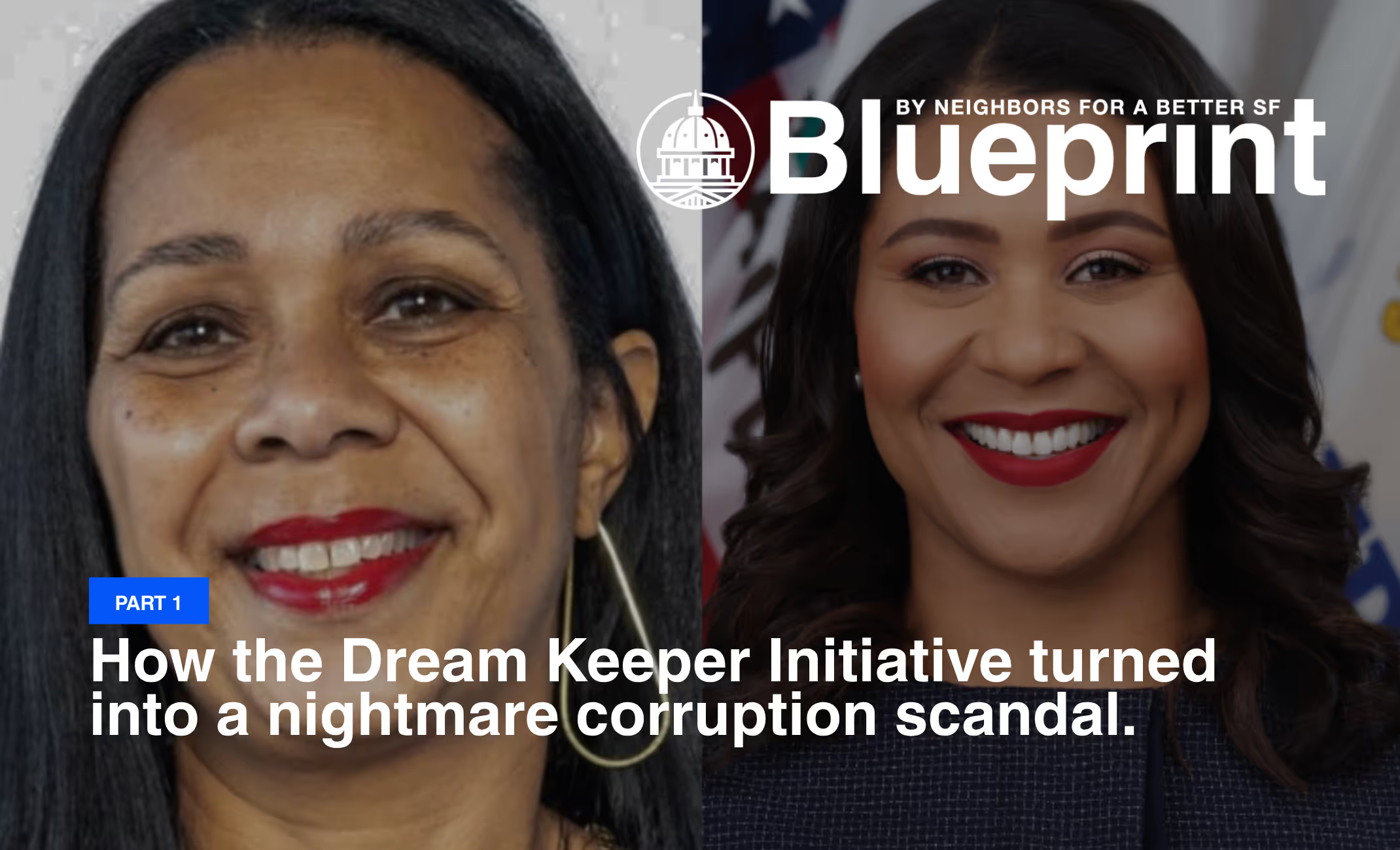.png)
The Dream Keeper Initiative became a blueprint for how bad leadership and broken oversight can turn a well-intentioned public program into a personal cash machine.
A new joint report by the City Controller and City Attorney confirmed initial whistleblower allegations: under former Executive Director Sheryl Davis, the Human Rights Commission (HRC) ignored nearly every city rule meant to safeguard public dollars. Davis treated HRC’s accounts like her own private piggy bank—approving payments without contracts, steering funds toward her personal projects, and even enriching people close to her.
Between 2021 and 2023, HRC operated with no Chief Financial Officer, an astonishing failure for a department handling tens of millions of dollars through Dream Keeper. Even after the department finally hired one—more than two years after DKI launched—Davis repeatedly overrode his authority and approved payments he flagged as questionable. Employees who processed transactions often had no financial training at all. The department lacked the most basic internal controls, and the few people who tried to raise concerns were brushed aside. Davis created a culture where “helping the community” was used as a moral shield for ignoring every rule in the book.
The audit is blunt. It found Davis spent at least $75,000 on personal expenses—travel, promotional materials, and reimbursements that had nothing to do with city business. She directed HRC funds toward programs tied to her former employers and then listed those same programs on her personal website to promote herself. The report states plainly that Davis “viewed herself as having discretion to use HRC funds for her own purposes without transparency or accountability.” She saw herself as above the rules, and everyone around her learned quickly not to question it.
But the rot didn’t stop with her. The Human Rights Commission, the oversight body meant to keep the department in check, did nothing (yes, the oversight body has the same name as the department it’s supposed to oversee). Its former chair, Karen Clopton, even defended one of the most controversial nonprofits in the Dream Keeper orbit—Collective Impact, run by Davis’s live-in partner, James Spingola. This was not oversight. It was denial.
And the so-called Dream Keeper Community Accountability Committee, formed to ensure transparency, was itself compromised. Some of its members were connected to organizations that directly benefited from the funds they were supposed to monitor. Randal Seriguchi Jr., Executive Director of Urban Ed Academy, sat on the committee while his nonprofit held active DKI grants worth $1.2 million. A city report later revealed that HRC reopened the committee’s application period so Seriguchi could apply after missing the deadline—an act of blatant favoritism. Urban Ed, founded by former city contractor Dwayne Jones—who was later arrested on corruption charges—used DKI money for programming in Oakland, not even in San Francisco. Another committee member, Marna Armstead, co-founder of SisterWeb SF Community Doula Network, also sat on the committee while her organization was listed as a DKI grantee. These weren’t small lapses—they were structural conflicts of interest baked into the oversight system itself.
There is, finally, a glimmer of progress. New leadership at HRC has agreed to implement every one of the audit’s recommendations: mandatory employee training, clear separation of financial approval roles, and the re-establishment of real oversight protocols. That’s encouraging and a move in the right direction.
.avif)

.webp)
.png)
.png)